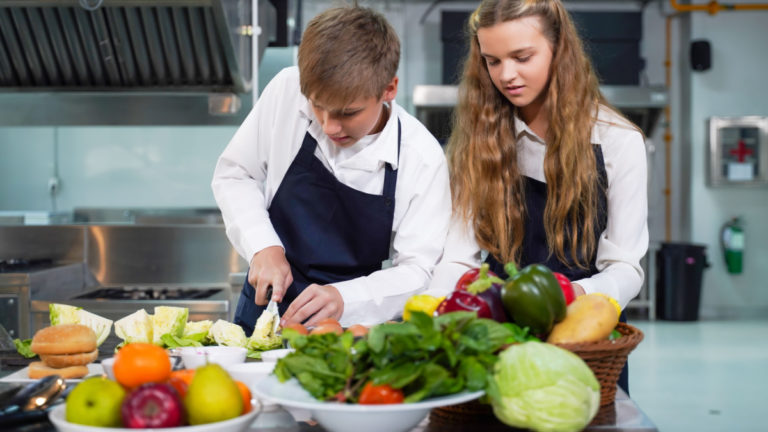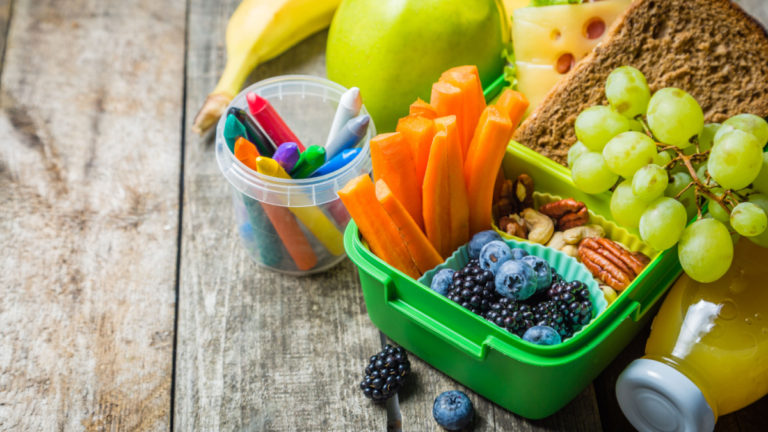When Tasmanian children returned to the classroom on Thursday 8 February, it marked the beginning of the 2024 school year for all Australian students – and the Federation of Canteens in Schools (FOCIS) says that’s an ideal time to talk about nutrition, well-being, better eating habits and healthy canteen food.
Leanne Elliston is a senior dietitian and executive officer with Nutrition Australia and, in her additional roles as Chair of FOCIS – the peak body working with state and territory canteen associations and networks – she told EducationDaily that canteens are an integral part of the learning environment and play an important role in health promotion.
In 2024, Ms Elliston says FOCIS is “strengthening its commitment to fostering an environment that supports the physical and mental development of our young learners”.
“The most important aim for FOCIS this year is to raise awareness of our mission, vision, and values so more school canteens and partners/supporters join us to promote healthy eating in schools,” she says.
Strategy aims to improve long-term health and academic outcomes
Through a revamped website and various initiatives and partnerships, FOCIS is taking a strategic approach to improving knowledge around nutrition and food within the education sector.
Healthy eating, Ms Elliston says, is a cornerstone of a child’s development – influencing physical health, academic performance, and long-term well-being.
Research consistently shows that proper nutrition positively impacts concentration, mood stability, and cognitive function in students.
By establishing healthy eating habits early on, she told EducationDaily “we empower children to make informed choices about their diet, laying the foundation for a lifetime of good health”.
Teaching the teachers
FOCIS provides accessible training and accompanying resources for canteen staff and school educators. Training includes effective canteen management, advocating for a whole school approach to healthy eating, healthy eating foundations, best practice financial management, and preparing safe food.
“FOCIS’s remit is to bring all states and territories together,” Ms Elliston told EducationDaily.
“We all have the same end goal, and it is our responsibility to provide a level of awareness and cohesion in what we are trying to achieve so we can reach more Australian children, teachers, and families.”

FOCIS initiatives in 2024
- The National School Food Network
The National School Food Network provides a platform for collaboration, idea sharing, and access to resources that support the provision of healthy foods and drinks in Australian schools. Members include State and Territory based school canteen associations, relevant State and Territory Government Departments, and other organisations engaging in evidence-based nutrition promotion within the school environment. The network comes together throughout the year to strengthen existing advocacy in schools across the country.
- Community partnerships
FOCIS partners with organisations that are committed to providing hands-on experiences within schools including food, planting, harvesting, and cooking activities that foster a deeper appreciation for fresh, locally sourced produce.
- FOCIS nutrition education/training programs
FOCIS offers a range of online training courses. Training for Canteen Operators is an eight-module self-paced training course designed to equip school canteen operators with the skills and knowledge to provide safe, nutritious food in a financially viable food service. In addition, the All about Allergens training is a free online course for anyone working in food service.
- FOCIS campaigns and the new website
Over the next 12 months, FOCIS plans to launch advocacy campaigns to support its partners and encourage parents and caregivers to consider nutritious meals for their children during their time at school. The new FOCIS website provides information on state and territory support, practical tips, recipes, and resources to make it easier for individuals to embrace healthier eating habits.

Community involvement makes a positive difference
It takes a village to teach a child about nutritious eating. Ms Elliston says parents, teachers, and community members are invited to connect with FOCIS in championing healthy eating in schools.
But as the nationwide cost-of-living crisis continues to bite, Ms Ellison says canteens work “extremely hard to ensure food is affordable – with many barely breaking even”.
“Often the sheer cost of setting up and sustaining a food service at the school can be prohibitive to many schools with limited resources,” Ms Elliston says.
Improvements happen one step at a time
Whether the issue is worsening or improving varies, depending on location.
“Some states are doing an incredible job mandating healthy food and drink polices to ensure children have access to healthy food,” she told EducationDaily.
“In doing so, schools are required to have their menus assessed by suitably qualified nutritionists and supported in their efforts to provide healthy and affordable food options. However, this is not happening across the whole country and is very much dependent on state and territory government preventive health priorities. As such, it is difficult to get a whole picture of healthy food access for school children nationally.”
Partnerships offer much-needed financial support
To help change the situation, Ms Elliston says the partnerships FOCIS strives to nurture are central to the sustainability of the work they do, including informing and supporting information-sharing models and practices.
“Partners and supporters provide a local-level approach to assisting canteens in promoting healthy eating across all year levels,” she says.
“It is important to note that we are an independent voice for the provision of healthy food in schools with no influence from food industry whatsoever.”
In this new school year, Ms Elliston told EducationDaily that raising awareness of the organisation’s research-informed key messages and the need for ongoing support for school governing bodies, state canteen associations and networks, governments (federal and state) industry, and the broader community, is vital.
“To continue to improve the health of Australian school children and support our associations, stakeholders, and partners, we rely on peak funding bodies to operate. As a small charity, we receive very little revenue and depend on the skills and passion of our partners to help raise the voice of healthy food in schools,” she says.
“Building a sustainable revenue base from government and non-government sources will help to strengthen our capacity to achieve our mission in making healthy food and drinks a priority in every school community in Australia.”
More families need access to affordable food
For schools lucky enough to have a canteen, Ms Elliston says the biggest challenges are around ensuring the food and drink offerings are “healthy, enjoyable and affordable”.
“Access to healthy and affordable food at school is crucial to support our children’s learning and well-being,” Ms Elliston told EducationDaily.
The fact that not all Australian schools have a school canteen/tuckshop or the ability to access food at school is one of the key priorities for FOCIS currently.
“Schools are learning environments for children – and that should also include being a learning environment for healthy food.”








